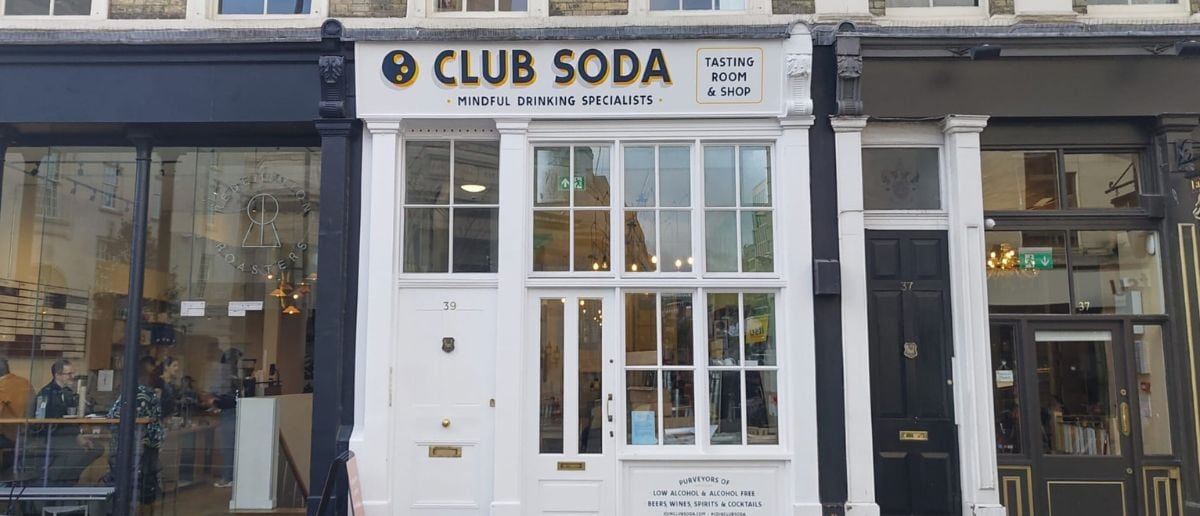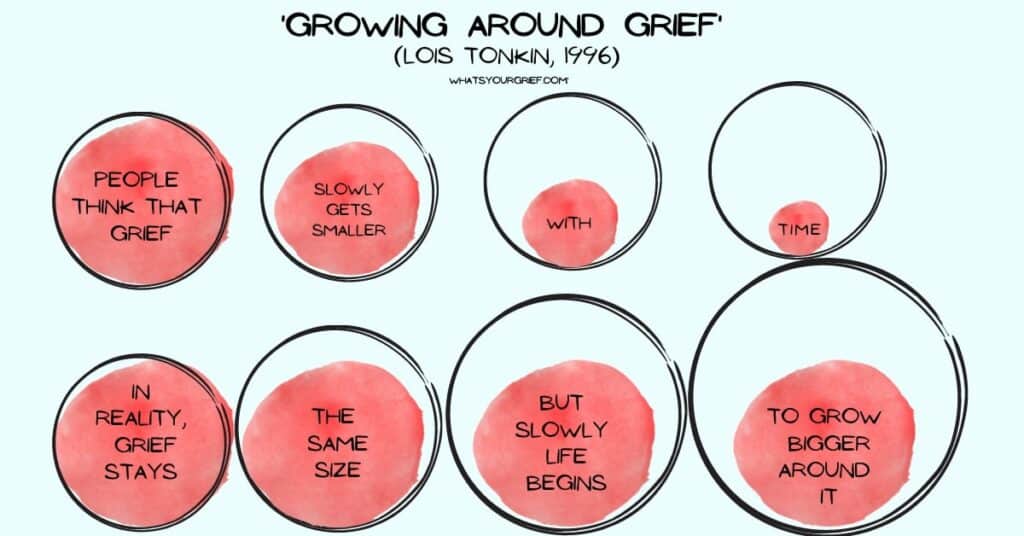
This website uses cookies to improve your experience. We'll assume you're ok with this, but you can opt-out if you wish. Read More
The Next Round: What happens after you change your drinking?

Human hearts are robust things, but they can break easily.
There will be days when your heart physically hurts in your chest, when you feel the weight of sorrow so deeply, when you are immobile with grief. On those days, keep breathing.
And before we go any further, I want you to know that I hear you. My heart goes out to you. I can’t tell you that everything will be OK; nobody can make you that promise. But you can keep going through it all. And you will emerge from this time.
When you’re faced with heartbreak, it can be so tempting to drown your sorrows. Friends, family and loved ones may offer you a drink. You might find yourself reaching for the bottle. You may want to blot everything out with booze. I’m not going to lecture you about why that’s a bad idea.
Instead, I want to share some ways to cope with heartbreak without drinking.
In any situation that alcohol looks like the only answer, take a step back and consider what you hope a drink will give you. When you experience heartbreak:
All of these experiences and feelings are available to you without alcohol. If you do drink, don’t be hard on yourself. But you can give yourself some more choices.
The intensity of heartbreak can skew your perspective. But know that whatever is happening right now, your feelings will change with time.
If you want to forget what is happening, find a good friend who will talk to you about nothing. Comfort yourself physically with soft textures, warm lighting and soothing music. Take time to remember by writing about your heartbreak in your journal. Or let yourself notice all that is good and happy in the world around you, finding joy in the everyday and ordinary things.
Heartbreak can feel all-encompassing. It is easy to become lost in your grief. The intensity of heartbreak can skew your perspective. But know that whatever is happening right now, your feelings will change with time. In the face of overwhelming loss and the presence of death, English medieval mystic Julian of Norwich got it right when she said, “All shall be well, and all shall be well, and all manner of thing shall be well.”
You don’t have to be a person of faith to believe that good things will come. The world will right itself, somehow. And in the meantime, it’s also OK to feel utterly hopeless and bereft.
So pay attention to your needs, whether they are physical, emotional or social. Treat yourself with excessive kindness and gentleness. Breathe through your feelings. And, as far as you can, accept your emotions for what they are.
If you’ve been looking for help to deal with heartbreak, you will likely have come across the Kübler-Ross change curve or five stages of grief. This theory is frequently misunderstood and misrepresented as a linear process by which you go step-by-step through stages of denial, anger, bargaining, depression and acceptance. But our lived experience of heartbreak is different. So, where did this theory come from?
Dr Elisabeth Kübler-Ross was a Swiss-American psychiatrist and a pioneer in the US hospice movement. Against the backdrop of a medical culture that dealt with death with awkwardness and hushed tones, Kübler-Ross spoke directly to people who were dying about their experiences. Her book, On death and dying, was ground-breaking. In the book, she describes the patterns of feelings and emotions that dying people experienced and how they coped, making sense of and living with incurable conditions.
The Kübler-Ross model has also become a stick that we beat ourselves with. If our heartbreak does not follow the prescribed pattern, we think there is something wrong with us
Over time, the complexity of Kübler-Ross’s reflections have been massively oversimplified, generalised and applied to everything from relationship break-ups to organisational change. But the model has also become a stick that we beat ourselves with. Rather than using it to validate the fact that we will experience a wide range different of emotions, the stages of grief become a standard that we judge ourselves against. We feel the urgent need to move on from stage to stage to reach the end of the curve. And if our heartbreak does not follow the prescribed pattern, we think there is something wrong with us.
For me, a better image of grief is found in Max Porter’s beautiful book, Grief is the thing with feathers. Crow is an unexpected and initially unwelcome visitor in a bereaved family’s home in the wake of their mother’s sudden death. In his own words, Crow is a “friend, excuse, deus ex machina, joke, symptom, figment, spectre, crutch, toy, phantom, gag, analyst and babysitter.” A brooding personification of heartbreak and loss, Crow promises the family, “I won’t leave until you don’t need me anymore.”
One of heartbreak’s challenges is learning to live with the chaos it brings into our lives. But, as we learn to respect and appreciate its presence, grief can turn into a beautiful gift. We learn to live with heartbreak until, one day, we don’t need it anymore.
One of the abiding myths of heartbreak is that time heals everything. You might imagine that a time will come when you stop hurting, when your broken heart is healed, and when your loss no longer matters.
But this isn’t most people’s experience. If you have lived with loss, you’ll know that your experience of it does change. But it never quite goes away. Like it or not, the heartbreak you suffer becomes an indelible part of your personal history. The loss, grief and shock you have experienced will always be part of your story. The big question for you is whether these experiences will be your final chapter.
One helpful way of visualising how heartbreak changes over time comes from grief counsellor Lois Tonkin. Rather than imagining that your feelings of grief and loss will shrink over time, she suggests you can instead see your life as growing around your grief. The source of your heartbreak doesn’t become any less important. But as a proportion of your whole life, it begins to take up less room.

So as you navigate your heartbreak, look after yourself and (I hope) avoid leaning into drinking as a solution, keep this perspective in mind. This experience of heartbreak will change you, yes. But it could be a place from which you begin to grow.
Ask for help if you need it. Take good care of yourself. And keep breathing.
Cheers

Dru Jaeger is one of Club Soda’s co-founders and the author of How to Be a Mindful Drinker. If you’ve been drinking to cope with heartbreak and need help to cut down or stop, Club Soda’s free introductory course, How to Change Your Drinking, is an ideal starting point.
This website uses cookies to improve your experience. We'll assume you're ok with this, but you can opt-out if you wish. Read More
| Name | Domain | Purpose | Expiry | Type |
|---|---|---|---|---|
| wpl_user_preference | joinclubsoda.com | WP GDPR Cookie Consent Preferences. | 1 year | HTTP |
| PHPSESSID | www.tickettailor.com | PHP generic session cookie. | 55 years | HTTP |
| AWSALB | www.tickettailor.com | Amazon Web Services Load Balancer cookie. | 7 days | HTTP |
| YSC | youtube.com | YouTube session cookie. | 55 years | HTTP |
| Name | Domain | Purpose | Expiry | Type |
|---|---|---|---|---|
| VISITOR_INFO1_LIVE | youtube.com | YouTube cookie. | 6 months | HTTP |
| Name | Domain | Purpose | Expiry | Type |
|---|---|---|---|---|
| _ga | joinclubsoda.com | Google Universal Analytics long-time unique user tracking identifier. | 2 years | HTTP |
| sbjs_migrations | joinclubsoda.com | Sourcebuster tracking cookie | 55 years | HTTP |
| sbjs_current_add | joinclubsoda.com | Sourcebuster tracking cookie | 55 years | HTTP |
| sbjs_first_add | joinclubsoda.com | Sourcebuster tracking cookie | 55 years | HTTP |
| sbjs_current | joinclubsoda.com | Sourcebuster tracking cookie | 55 years | HTTP |
| sbjs_first | joinclubsoda.com | Sourcebuster tracking cookie | 55 years | HTTP |
| sbjs_udata | joinclubsoda.com | Sourcebuster tracking cookie | 55 years | HTTP |
| sbjs_session | joinclubsoda.com | SourceBuster Tracking session | Session | HTTP |
| Name | Domain | Purpose | Expiry | Type |
|---|---|---|---|---|
| mailchimp_landing_site | joinclubsoda.com | Mailchimp functional cookie | 28 days | HTTP |
| __cf_bm | tickettailor.com | Generic CloudFlare functional cookie. | Session | HTTP |
| NID | google.com | Google unique id for preferences. | 6 months | HTTP |
| Name | Domain | Purpose | Expiry | Type |
|---|---|---|---|---|
| _ga_10XZMT03ZM | joinclubsoda.com | --- | 2 years | --- |
| AWSALBCORS | www.tickettailor.com | --- | 7 days | --- |
| cf_clearance | tickettailor.com | --- | 1 year | --- |
| VISITOR_PRIVACY_METADATA | youtube.com | --- | 6 months | --- |
Join Club Soda for 10% off your first order of drinks for UK delivery. Plus get our latest news and special offers for members to choose better drinks, change your drinking and connect with others.
If you get an error message with this form, you can also sign up at eepurl.com/dl5hPn